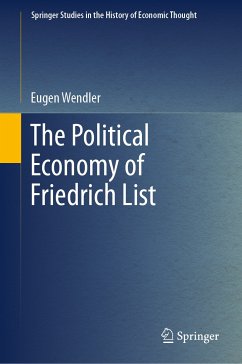This book offers a comprehensive assessment of Friedrich List's economic and political thinking. It starts with a systematic positioning of List`s economic theory as well as a differentiation from other economic systems. Furthermore, it examines the ethical sources of List`s theory, as well as List`s geopolitical, technical and economic visions. The author also introduces List as the pre-thinker of social market economy and discusses his ideas on European integration, development politics and List's assessment of the main problems of the modern world economy. The book will appeal to scholars and students of the history of economic thought and economic history, as well as anyone interested in the life and work of the German economist Friedrich List (1789-1846). This book is a translation of an original German edition. The translation was done with the help of artificial intelligence (machine translation by the service DeepL.com). A subsequent human revision was done primarily in terms of content, so that the book will read stylistically differently from a conventional translation.
Dieser Download kann aus rechtlichen Gründen nur mit Rechnungsadresse in A, B, BG, CY, CZ, D, DK, EW, E, FIN, F, GR, HR, H, IRL, I, LT, L, LR, M, NL, PL, P, R, S, SLO, SK ausgeliefert werden.









